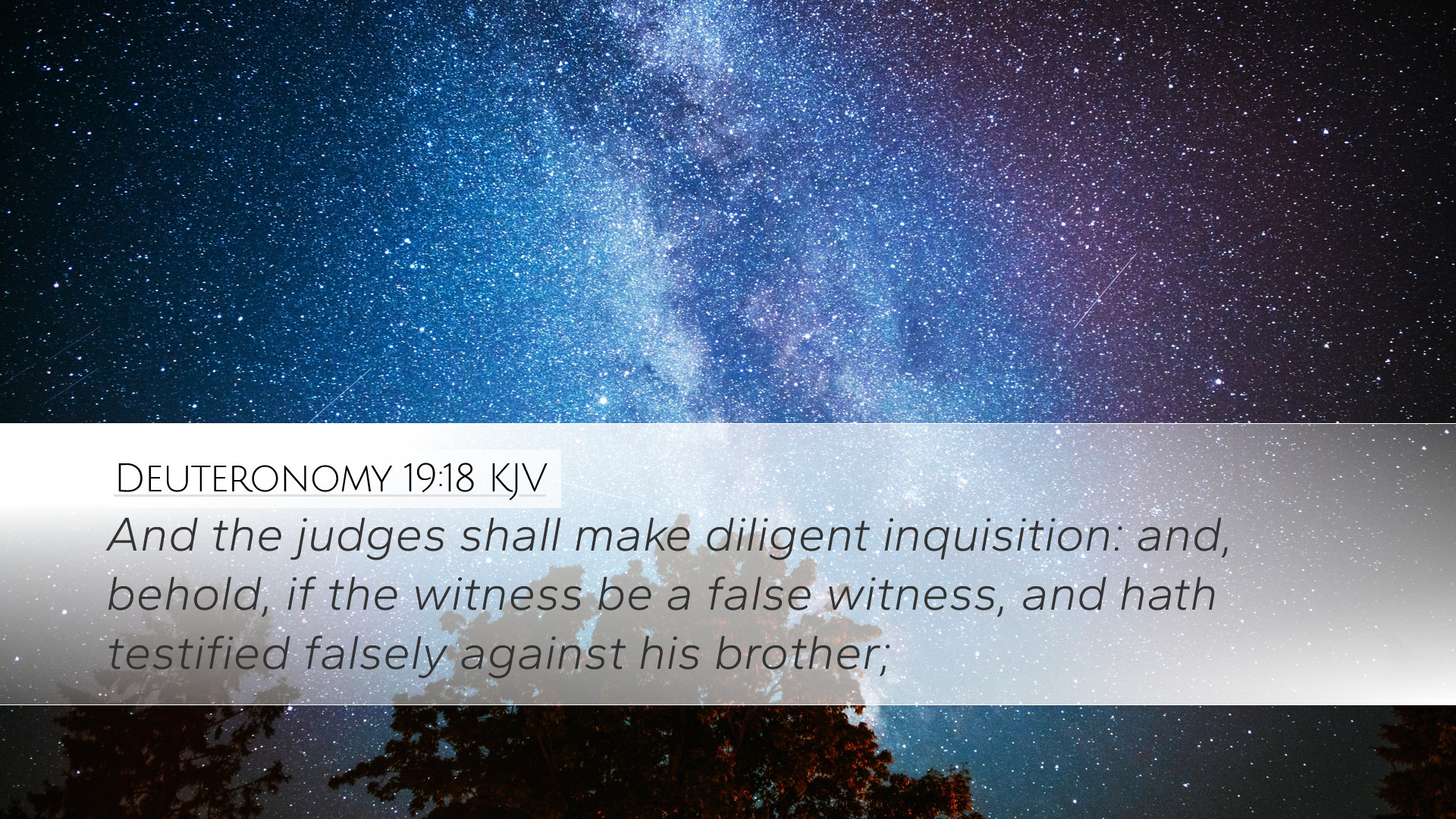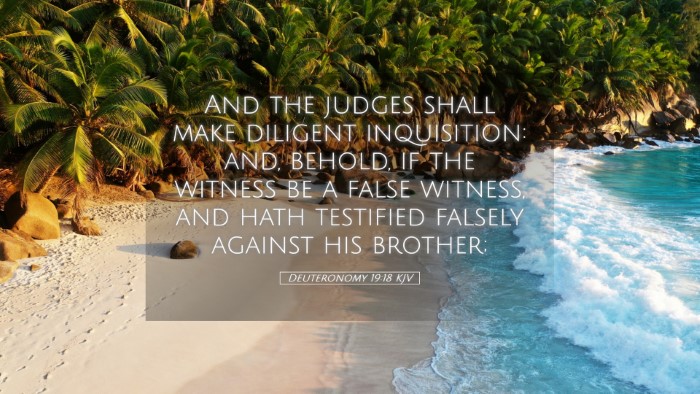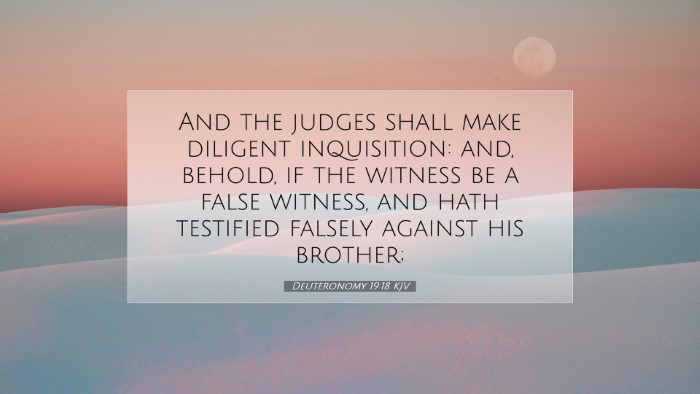Commentary on Deuteronomy 19:18
Verse Reference: Deuteronomy 19:18 - "And the judges shall make diligent inquisition: and, behold, if the witness be a false witness, and hath testified falsely against his brother;"
Introduction
Deuteronomy 19:18 deals with the judicial processes within the Israelite community, focusing on the integrity of witnesses in legal matters. This verse is part of a broader context concerning cities of refuge and the administration of justice. The emphasis here is on truth, accountability, and the seriousness of bearing false witness.
Insights from Public Domain Commentaries
Matthew Henry's Commentary
Henry emphasizes the importance of justice and truth in community life. He notes that the judges are commanded to carry out a diligent investigation, which indicates a structured approach to discernment in the judicial processes. Henry highlights the gravity of false testimony, indicating that it not only harms the individual accused but also undermines the moral fabric of the community.
- Diligent Inquisition: The term 'diligent inquisition' reflects the responsibility placed upon the judges. They are to avoid haste and ensure that their judgment is based on careful and thorough examination.
- False Witness: Bearing false witness is seen as a severe crime, one that the Law deeply addresses. Henry points out that the consequences of such an act extend beyond the courtroom, affecting the trust and integrity of societal bonds.
Albert Barnes' Notes
Barnes elaborates on the mechanisms of ancient Israeli justice and the role of a witness in trials. He notes that the law required two or three witnesses to establish a fact, as mentioned in Deuteronomy 19:15, and warns against the dangers of falsehood in witness testimonies.
- Importance of Witness Integrity: Barnes insists that the integrity of witnesses is paramount in maintaining justice. The law's provision for investigating false witnesses serves to protect both the accused and the judicial system itself.
- Consequences of False Testimony: False witnesses faced severe penalties, functioning as a deterrent against dishonesty. This reflects the broader biblical principle that truth is not just a moral value but a societal necessity.
Adam Clarke's Commentary
Adam Clarke provides a detailed exploration of the societal implications of false witness and the need for rigorous judicial processes. He underscores that a community founded on truth is essential for social stability and righteousness.
- Judicial Ethics: Clarke points out that the call for diligent inquiry requires judges to possess not only knowledge of the law but also wisdom and discernment, enabling them to sift through complexities in testimonies effectively.
- Moral Responsibility: He emphasizes that every individual has a moral duty to contribute to justice by either being truthful in their witness or by upholding the judicial system’s integrity through conscientious participation.
Theological Implications
This verse presents significant theological implications regarding justice, community, and the character of God. The requirement for diligent investigation mirrors God’s nature as a righteous judge who seeks truth and justice.
- God as the Supreme Judge: The law reflects God’s divine justice, emphasizing that He takes false testimony seriously. This leads to a greater understanding of God’s holiness and His desire for truth in His covenant community.
- Community Ethics and Responsibility: The expectation of integrity among witnesses connects to the New Testament teachings on truth-telling and the ethical conduct of believers, serving as a reminder of the community's role in upholding God’s standards of justice.
Practical Applications
For pastors, students, and theologians, this verse serves as a profound reminder of the weight of words and the significant role of truth in building a healthy community. The following applications can be drawn:
- Promoting Truth in Fellowship: Encourage open discussions about the importance of truthfulness in every aspect of life within church communities. Foster environments where honesty is valued and accountability is encouraged.
- Educating on Judicial Responsibilities: There should be an emphasis on understanding justice from a biblical perspective, including the implications of false testimony in both personal and community contexts.
- Leading by Example: Leaders and pastors should model integrity and truthfulness, knowing that their actions set a precedent for the congregation and reflect the character of Christ.
Conclusion
Deuteronomy 19:18 serves as a heartfelt plea for integrity, truthfulness, and justice within the community of God's people. The insights gathered from esteemed commentators like Matthew Henry, Albert Barnes, and Adam Clarke lay a strong foundation for understanding the vital principles surrounding false witness. It challenges believers to advocate for justice, model truth, and safeguard the community from the harm of deceit.


